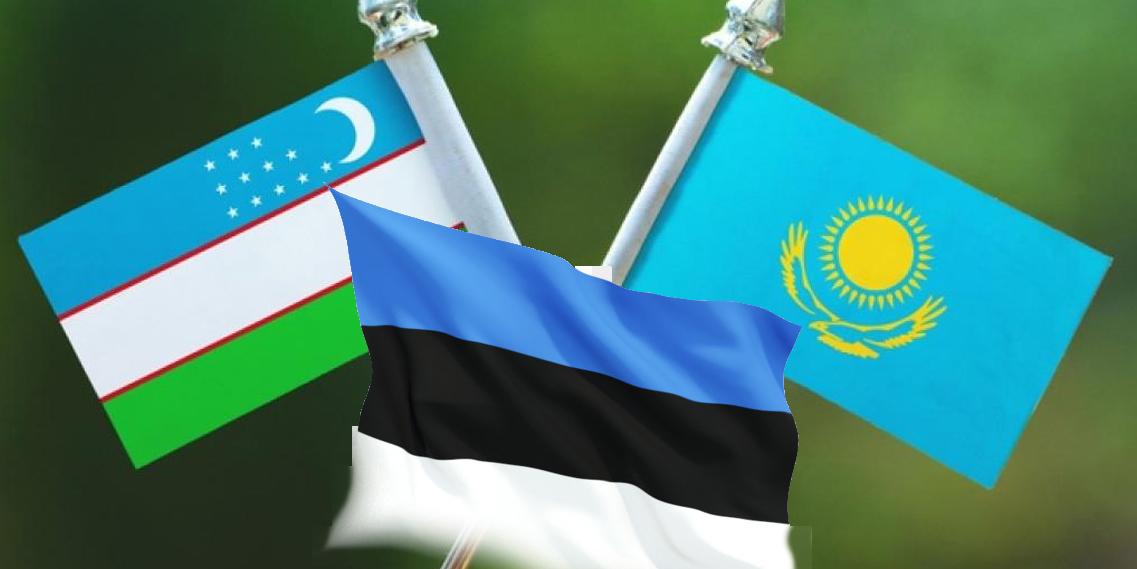Three progressive post-Soviet republics

All post-Soviet countries achieved significant progress in transitioning to market economies and ensuring that democratic values are respected. New Europe writes about three of them. Kazakhstan has managed to parlay its strategic location into a role as a bridge between Europe and other great powers like Russia and China, as well as a hub of international mediation. Uzbekistan has embarked on an ambitious wave of privatization that has made it the leading Central Asian destination for foreign investment. Estonia, meanwhile, has demonstrated dexterous policymaking that has allowed the smallest Baltic state to become known as “the world’s most digitally advanced society”.
Kazakhstan: the diplomatic hub of an increasingly important region
Nur-Sultan is clearly aware of Kazakhstan’s strengths, which include its abundant natural resources and its strategic geographical location, and has made these advantages a central pillar of its development. One of the Central Asian country’s most notable successes has been its crafting of a multifaceted foreign policy centred around neutrality and pragmatic engagement with a variety of actors. Kazakhstan has consistently maintained good relations with both Russia and China yet has resisted attempts to politicise these tight trade links. In parallel, Nur-Sultan has steadily carried out political and economic reforms and has taken pains to maintain an equally collaborative partnership with the EU, which is both Kazakhstan’s biggest trade partner and its most significant foreign investor.
This careful balancing act has maximized Kazakhstan’s ability to attract foreign investment from all sides, but it’s also allowed Nur-Sultan to carve out a niche as a trusted interlocutor in the region, in keeping with its ambitions of becoming an international diplomatic hotspot akin to Geneva. The country has already hosted a number of high-profile diplomatic talks, including the Astana peace process between Russia, Turkey and other actors with interests in Syria.
Kazakhstan will likely have further opportunities to flex its diplomatic muscle in the coming years, as international eyes increasingly turn to Central Asia. As EU foreign policy chief Josep Borrell recently highlighted, the Taliban’s takeover of Afghanistan is a seminal geopolitical event with wide-ranging consequences, including the fact that Central Asia will become a region of greater strategic importance for Europe.
Uzbekistan: a magnet for foreign investment
Uzbekistan will undoubtedly see its profile on the global diplomatic stage grow as well following the crisis in Afghanistan. The country is already in talks, for example, with the United Nations and the European Union about how to use a 400,000 logistics facility in the border city of Termez to supply Afghanistan with humanitarian aid, and the recently-appointed EU special representative for Central Asia visited the logistics center, herself, earlier in August.
While Nur-Sultan has made a name for itself with its efforts to resolve international conflict, Tashkent has focused the lion’s share of its international outreach efforts on attracting international investment. Uzbekistan has big dreams of forging tighter links between Central Asia and the international trading system, as illustrated by the large-scale conference on connectivity recently held in Tashkent. It’s no accident that Uzbekistan’s inflows of foreign investment have soared, even during the coronavirus pandemic.
Uzbek President Shavkat Mirziyoyev took steps within months of his election five years ago to make the country more attractive for investors, including liberalizing exchange controls, modernizing the tax regime and privatizing state-owned behemoths. Uzbekistan’s sweeping national reform agenda is far from complete, but it is clearly already bearing fruit with the country rising through the ranks of the Ease of Doing Business index and netting billions a year in foreign investment.
Estonia: digital drive allows small nation to punch above its weight
Directly across the Baltic Sea from Finland, Estonia offers its fellow post-Soviet states a shining example of how innovative policymaking can build a robust economy even in a small country with relatively few natural resources. As early as 1996, Estonia implemented programmes like “Tiigrihüpe” (Tiger Leap) to turbocharge entrepreneurship and digitalisation. Tallinn’s early commitment to a digital future has borne significant fruit. The country’s e-residency programme has attracted investors and entrepreneurs from around the world. Government services, meanwhile, have become radically streamlined—not to mention less prone to corruption—through the move to the digital sphere; some 98% of government interactions in Estonia now take place online.
Estonia has more unicorns per capita than anywhere else in Europe, and its striking boom in entrepreneurship has had knock-on effects across its whole society—the Baltic nation is not only the wealthiest out of the former Soviet states, but its GDP per capita surpasses many longstanding EU members, including Portugal.
03 September 2021 / 10:25
 Latest news
Latest news Latest news
Latest newsIranian envoy: Next 3+3 meeting to be held in Turkey soon
19 July 2024 / 14:01
Armenian authorities probing military aircraft crash
19 July 2024 / 13:57
Georgian President asks Constitutional Court to repeal foreign agents law
15 July 2024 / 14:53
Armenia kicks off joint military exercise with U.S.
15 July 2024 / 14:48
Armenian Foreign Minister left for New York
15 July 2024 / 14:44
Macron reaffirms support for Armenia-Azerbaijan dialogue at meeting with Erdogan
12 July 2024 / 13:33
Masoud Pezeshkian to be inaugurated as Iran's president in three weeks
11 July 2024 / 11:04
Mirzoyan, Blinken discuss bilateral issues in Washington
10 July 2024 / 14:30
U.S. continues to work for diplomatic resolution between Armenia, Azerbaijan
10 July 2024 / 14:19
Armenian FM to travel to Washington
09 July 2024 / 13:33
Reformist Pezeshkian wins Iran's presidential race
08 July 2024 / 13:14
Armenian parliament speaker hails 'productive' talks with U.S. officials
05 July 2024 / 14:32
Astana hosting SCO+ summit with participation of Aliyev and Erdogan
04 July 2024 / 14:40
Armenia-Azerbaijan talks a priority for U.S. – State Dept
04 July 2024 / 13:37
Why does U.S. Congress delegation arrive in Armenia?
03 July 2024 / 13:44

 27 July 2024 / 06:57
27 July 2024 / 06:57





